National
Taxpayers demand a public inquiry into Elections B.C.
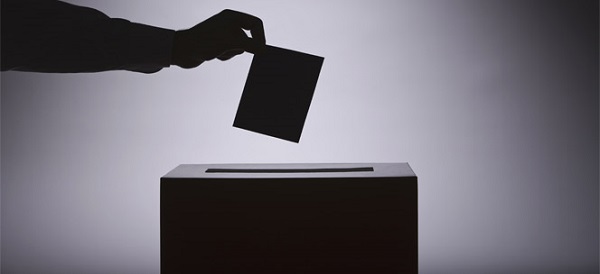
From the Canadian Taxpayers Federation
By Carson Binda
Elections B.C. is drawing scrutiny which threatens to undermine taxpayer’s faith in our elections.
That’s a problem.
Here’s the solution: call a public inquiry into Elections B.C., not a politicised process through legislative committees working behind closed doors.
There is nothing to suggest the B.C. provincial election was stolen. There is nothing to suggest Elections B.C. was in cahoots with one party or another. But that doesn’t mean we can afford to turn a blind eye to its bureaucratic mishandling of the most important day in our democratic cycle.
In a democracy, taxpayers must have faith in elections and repeated screw-ups from Elections B.C. erodes that trust. And make no mistake, Elections B.C. did screw up its handling of the provincial election.
The problems with Elections B.C. range from bad to worse.
It took Elections B.C. more than a week to finish the preliminary tally of votes. Voting closed Oct. 19, but the final count didn’t occur until Oct. 28.
British Columbians shouldn’t be left in limbo because Elections B.C. bureaucrats won’t work late to count votes. And it shouldn’t take an extra week for the final count to begin.
Then came the revelation that Elections B.C. officials were storing ballots in their personal homes. Think about that for a moment. When you cast your ballot, did you imagine it would find its way into the basement of a bureaucrat’s home?
British Columbians generally believe Elections B.C. acts in good faith. But why allow questionable chains of custody for the most important pieces of paper in a democracy? Why risk storing ballots in bureaucrats’ basements instead of secure government buildings?
And we have good reasons to question the competency of the Elections B.C. bureaucracy.
First, the public was told Elections B.C. failed to count 14 votes in Surrey-Guildford. Then Elections B.C. found another 14 uncounted votes in the same riding, bringing the total to 28.
The NDP won Surrey-Guildford by 22 votes, meaning 28 uncounted votes could have been enough to alter the election. It’s also the riding that gave the NDP a one-seat majority government.
Elections B.C. blamed “human error” in a statement sent to the CTF for the uncounted votes in Surrey-Guildford.
A ballot box with 860 votes in Prince-George Mackenzie went uncounted and unreported during the initial counts. This mistake should have been caught immediately.
“Elections officials should have discovered this error when completing the ballot reconciliation process on election night, however this was not completed correctly,” according to Elections B.C.
Not only did Elections B.C. make a mistake by ignoring the ballot box in the first place, they also screwed-up the election night process by not catching its mistake.
In three-quarters of B.C.’s 93 ridings, mistakes by Elections B.C. led to unreported votes. That’s unacceptable.
To be fair, all the votes were eventually accounted for and counted. But our elections are too important to risk with these kinds of blunders from bureaucrats.
Both the ruling NDP and opposition B.C. Conservatives agree there needs to be an investigation into Elections B.C.’s mistakes.
The NDP wants an all-party committee made up of MLAs to probe Elections B.C. But that’s not good enough.
Legislative committees are political and are made up of politicians fighting for the spotlight. They can hide behind in-camera meetings the public doesn’t have access to.
For the public to have faith in our elections, the public needs to be involved in the inquiry. That’s what the B.C. Conservatives are calling for: an independent public review.
British Columbians need to have faith in our elections, so the public must be a part of the investigation. This is far too important an issue for taxpayers to be shunted off to the side while politicians play partisan games.
Carson Binda is the B.C. Director for the Canadians Taxpayers Federation.
COVID-19
Ontario court throws out Dr. Trozzi’s appeal after medical license revoked over COVID stance
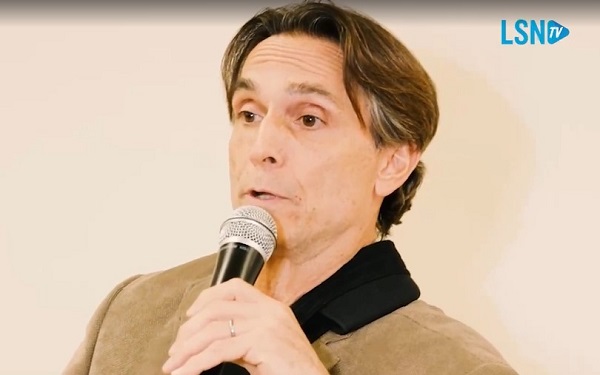
From LifeSiteNews
‘the Court has released its decision in my case against the College of Physicians and Surgeons of Ontario (CPSO). Unfortunately, the ruling went against us on every point, disregarding key evidence and legal standards to reach its decision’
As many of you know, the Court has released its decision in my case against the College of Physicians and Surgeons of Ontario (CPSO). Unfortunately, the ruling went against us on every point, disregarding key evidence and legal standards to reach its decision. This disappointing outcome reflects the Tribunal’s previous findings, which accused me of spreading so-called “misinformation” and acting dishonorably for providing alternative viewpoints on COVID-19. Despite the setback, I remain committed to defending the right to ethical medical practice and freedom of expression in healthcare. I am grateful for your continued support.
You can read the court’s ruling here: (Click Here)
Here is the latest Justice for Medicine Case Update from my lawyer and friend, Michael Alexander.
Case Update
November 8th, 2024
Hi Everyone,
As many of you may have already heard, the decision in the Trozzi case was released last Friday, far in advance of normal timelines. I am sorry to report that the Court ruled against us on all points of law, and in fact, ran roughshod over major issues to get where it wanted to go.
By way of background, the Tribunal had ruled in November of 2023 that Dr. Trozzi had been spreading misinformation concerning COVID-19, which had the potential to cause harm to the public, for instance, by encouraging people to take ivermectin or stating that the COVID-19 shots had not met appropriate standards of safety and efficacy. The Tribunal also ruled that Dr. Trozzi had failed to maintain the standard of practice by providing medical exemptions for COVID-19 shots. As well, it found that Dr. Trozzi had acted dishonorably by engaging in uncivil discourse.
I launched an appeal of the Tribunal decision in early 2024, and the matter was heard by the Divisional Court on October 8th. The decision was reviewed on the standard of correctness, which is the highest standard of review in the court system. It requires the Court to hold the lower decision-maker to the single, right answer on every point of law.
READ: Dr. Trozzi appeals revocation of his medical license in ‘existential moment’ for Ontario courts
In my written and oral submissions before the Court , I argued that the College Tribunal had failed to consider relevant evidence and had otherwise misrepresented relevant evidence. The Tribunal did not even mention Dr. Trozzi’s two scientific reports on COVID-19 science, which were tendered to respond to the expert witness report provided by Dr. Andrew Gardam, the College’s main expert on COVID-19 science. Dr. Trozzi’s reports contained references to over 160 articles from internationally recognized peer-reviewed journals, dozens of articles waiting for publication approval and statistics taken from Public Health England, Our World in Data, Statistics Canada and Public Health Ontario, while Dr. Gardam’s brief report referred to less than a dozen sources.
Dr. Trozzi’s reports were put into evidence at the Tribunal hearing. They were the subject of my cross-examination of Dr. Gardam, the College’s re-direct of Dr. Gardam, and were also hotly debated during closing submissions. Yet, the Court ruled that the reports had never been introduced into evidence and were, therefore, irrelevant. This is an absurd ruling on its face, and flies in the face of the fact that the parties had reached a pre-hearing agreement to put the studies into evidence in a joint book of documents.
In my oral and written submissions, I noted that the Tribunal had failed to even mention my cross-examination of Dr. Gardam, during which Dr. Gardam admitted that he agreed with the major points of science advanced by Dr.Trozzi’s reports. In legal parlance, this is referred to as “impeaching the witness.” It refers to a mode of questioning whereby the witness is put in contradiction with his or her previous oral or written statements.
It goes without saying that impeaching the College’s main expert witness and turning him into a witness for Dr. Trozzi is highly relevant since it subverts the College’s allegation that Dr. Trozzi had been spreading misinformation that could cause public harm. However, the Tribunal did not even mention the cross-examination in its decision. That is clear evidence of bias and should have led the Court to overturn the Tribunal decision.
In the course of its decision, the Court approved the Tribunal’s failure to grapple with my cross-examination of the College’s expert witness on “misinformation,” Dr. Noni MacDonald, and brushed over the fact that the Tribunal illegitimately applied mere guideline documents as if they had the force of law; as well, the Court refused to recognize pre- and post-Charter Supreme Court cases that have established the absolute right of every citizen to express a minority or dissenting opinion on matters of public importance.
READ: Dr. Mark Trozzi: COVID tyrants must face justice, or we’re all at risk
While there was always the chance that the Court would affirm the Tribunal decision, since Dr. Trozzi did provide medical exemptions contrary to the College’s standard of practice, though without causing any patient harm, and had also engaged, at times, in uncivil discourse, it does not follow that the Tribunal had the right to ignore material evidence or misrepresent guidelines as legal norms. A positive ruling on those points could have been a major victory for all health care professionals, even if the Court had still chosen to affirm the Tribunal’s decision.
The Trozzi decision and other recent cases involving doctors dissenting from the public COVID-19 narrative have confirmed the following propositions:
- Any health college may conduct an unlawful search and seizure of a member’s office, which is to say, without establishing reasonable and probable grounds, as required by the Health Professions Procedural Code;
- Colleges may apply mere guideline and recommendation documents as if they have the force of law;
- Any College discipline tribunal may ignore or manipulate material evidence;
- Health professionals do not enjoy the fundamental right to register disagreements with government public health policies and recommendations.
For the time being, we have lost in spite of our best efforts because the Divisional Court of Ontario is perversely committed to enforcing the government’s narrative concerning COVID-19, even though we all know that it is utterly false and has caused injury and death to hundreds of thousands of Canadians.
This, however, is not the end of the road. Trump’s victory in the U.S. will change the zeitgeist around all public health issues, as will the appointment of RFK Jr. to a Cabinet position.
READ: Canadian doctors warn against new ‘self-amplifying’ COVID shots rolled out in Japan
Further, currently, I am defending municipal council members who have been penalized under a new provincial censorship regime simply for expressing an independent point of view on policy matters. These cases involve many of the same legal principles at play in the Trozzi case. If I am successful in one of the municipal cases, this could lay down some case law that will help our beleaguered doctors and their patients.
Best wishes,
Michael Alexander
Reprinted with permission from Dr. Mark Trozzi.
Addictions
Parliament votes for proposal recommending hard drug decriminalization
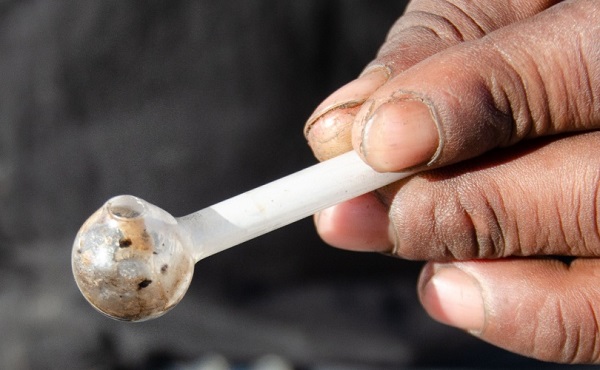
From LifeSiteNews
Canadian MPs have voted 210 to 117 in favor of a proposal to decriminalize simple possession of heroin, cocaine and all other illegal drugs across Canada despite the disastrous effects of lax drug policies already observed.
Canada may be one step closer to decriminalizing hard drugs as the majority of MPs voted in favor of a proposal recommending the move.
According to information published November 25 by Blacklock’s Reporter, MPs voted 210 to 117 in favor of a proposal recommending the decriminalizing of the simple possession of heroin, cocaine and all other illegal drugs across Canada. While the proposal is non-binding, it could point to how MPs would vote on a future bill seeking to augment the law.
“Why has it come to this?” Conservative MP Jacques Gourde, who opposes such a move, questioned. “We have reached the end of the road and nothing better lies ahead if we continue down this path.”
The recommendation, which received a House majority with only Conservative MPs voting against it, suggested “that the Government of Canada decriminalize simple possess of all illicit drugs.”
Prime Minister Justin Trudeau’s cabinet was noncommittal in their response to the suggestion, saying, “The government recognizes there are increasing calls from a wide range of stakeholders to decriminalize the simple possession of drugs as another tool to reduce stigma that can lead many to hide their drug use and avoid seeking supports including treatment.”
“The government is exploring policy approaches and a broader framework that would ease the impact of criminal prohibitions in certain circumstances,” the Cabinet continued.
The Trudeau government’s consideration of nationwide decriminalization comes despite drug-related deaths skyrocketing in the province of British Columbia after decriminalization was implemented there by the Trudeau government in 2023. In fact, the policy was considered so damaging by the left-wing controlled province that it had to ask to have certain aspects of the policy, such as the public use of drugs, rescinded earlier this year.
Other soft-on-drug policies have already been implemented by the Trudeau government, including the much-maligned “safer supply” program.
“Safe supply” is the term used to refer to government-prescribed drugs given to addicts under the assumption that a more controlled batch of narcotics reduces the risk of overdose. Critics of the policy argue that giving addicts drugs only enables their behavior, puts the public at risk, disincentivizes recovery from addiction and has not reduced – and sometimes even increased – overdose deaths when implemented.
The effects of decriminalizing hard drugs have been the source of contention throughout the country, as evidenced in Aaron Gunn’s documentary, Canada is Dying, and in U.K. Telegraph journalist Steven Edginton’s mini-documentary, Canada’s Woke Nightmare: A Warning to the West.
Gunn, who has since become a Conservative Party candidate, previously noted that his film shows clearly the “general societal chaos and explosion of drug use in every major Canadian city” since lax policies were implemented.
“Overdose deaths are up 1,000 percent in the last 10 years,” he said in his film, adding that “every day in Vancouver four people are randomly attacked.”
-

 ESG2 days ago
ESG2 days agoCan’t afford Rent? Groceries for your kids? Trudeau says suck it up and pay the tax!
-
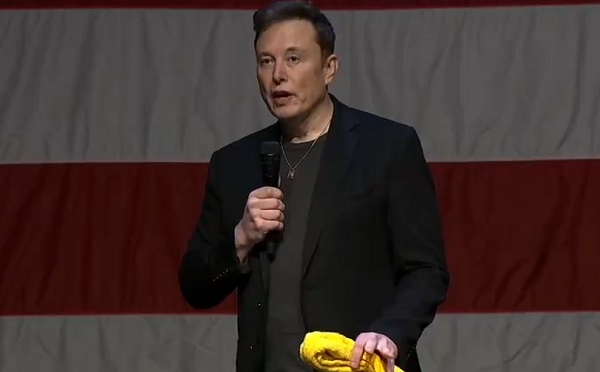
 International2 days ago
International2 days agoElon Musk praises families on X: ‘We should teach fear of childlessness,’ not pregnancy
-

 Business2 days ago
Business2 days agoCarbon tax bureaucracy costs taxpayers $800 million
-

 Addictions2 days ago
Addictions2 days agoBC Addictions Expert Questions Ties Between Safer Supply Advocates and For-Profit Companies
-

 John Stossel2 days ago
John Stossel2 days agoGreen Energy Needs Minerals, Yet America Blocks New Mines
-

 MAiD2 days ago
MAiD2 days agoOver 40% of people euthanized in Ontario lived in poorest parts of the province: government data
-

 Alberta2 days ago
Alberta2 days agoREPORT: Alberta municipalities hit with $37 million carbon tax tab in 2023
-
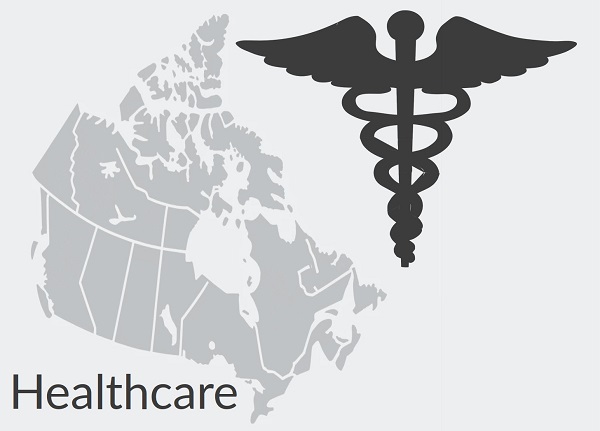
 Business1 day ago
Business1 day agoThe Health Research Funding Scandal Costing Canadians Billions is Parading in Plain View





